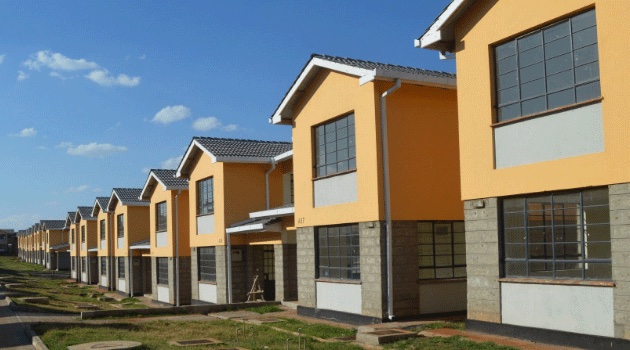
Treasury’s VAT Proposal Puts Affordable Housing Ambitions at Risk » Capital News
NAIROBI, Kenya, Apr 2 -The government’s ambitious affordable housing initiative faces a significant hurdle as the National Treasury proposes removing value-added tax (VAT) exemptions on key construction materials.
This move, outlined in the draft Finance Bill 2025 tabled in the National Assembly, threatens to escalate building costs and potentially derail the government’s housing targets.
The proposed changes aim to eliminate VAT exemptions on materials used exclusively in affordable housing projects.
Currently, developers benefit from tax relief on such materials, provided their projects receive prior approval from the State Department for Housing and final clearance from the Treasury Cabinet Secretary.
If Parliament passes the bill, developers will incur additional costs, which may be transferred to prospective homeowners.
The reintroduction of VAT on construction inputs like cement, steel, and roofing materials could increase project costs by 10–20%, depending on the project’s scale and location.
This escalation may force developers to raise housing prices, potentially pricing out low-income earners, the primary beneficiaries of the affordable housing program.
Launched in 2018 under former President Uhuru Kenyatta, the affordable housing program aimed to deliver 200,000 housing units annually.
As of April 2025, approximately 140,000 units have been constructed. The government now targets the completion of 1 million units over the next five years.
To finance the initiative, the government introduced a 1.5% housing levy on employees’ gross salaries, matched by employers, starting in July 2023.
Initially included in the Finance Act 2023, the levy faced legal challenges but was later reinstated through the Affordable Housing Act 2024, signed into law in March last year.
Despite legal hurdles, public interest in the program remains high. Over 500,000 Kenyans have expressed interest in the project’s first phase, with units priced between Ksh 640,000 for a studio and Ksh 1.28 million for a two-bedroom apartment.
The government offers a rent-to-own model, allowing monthly payments ranging from Ksh 3,000 to Ksh 7,000 over 25 years.
President William Ruto has expressed openness to allowing workers to use their payslips as proof of income to acquire housing units, potentially eliminating the need for upfront deposits.
Lands and Housing Cabinet Secretary Alice Wahome emphasizes that affordable housing is a global necessity, not unique to Kenya. The ministry plans to issue individual sectional titles to homeowners to ensure tenure security and build public trust in the program.